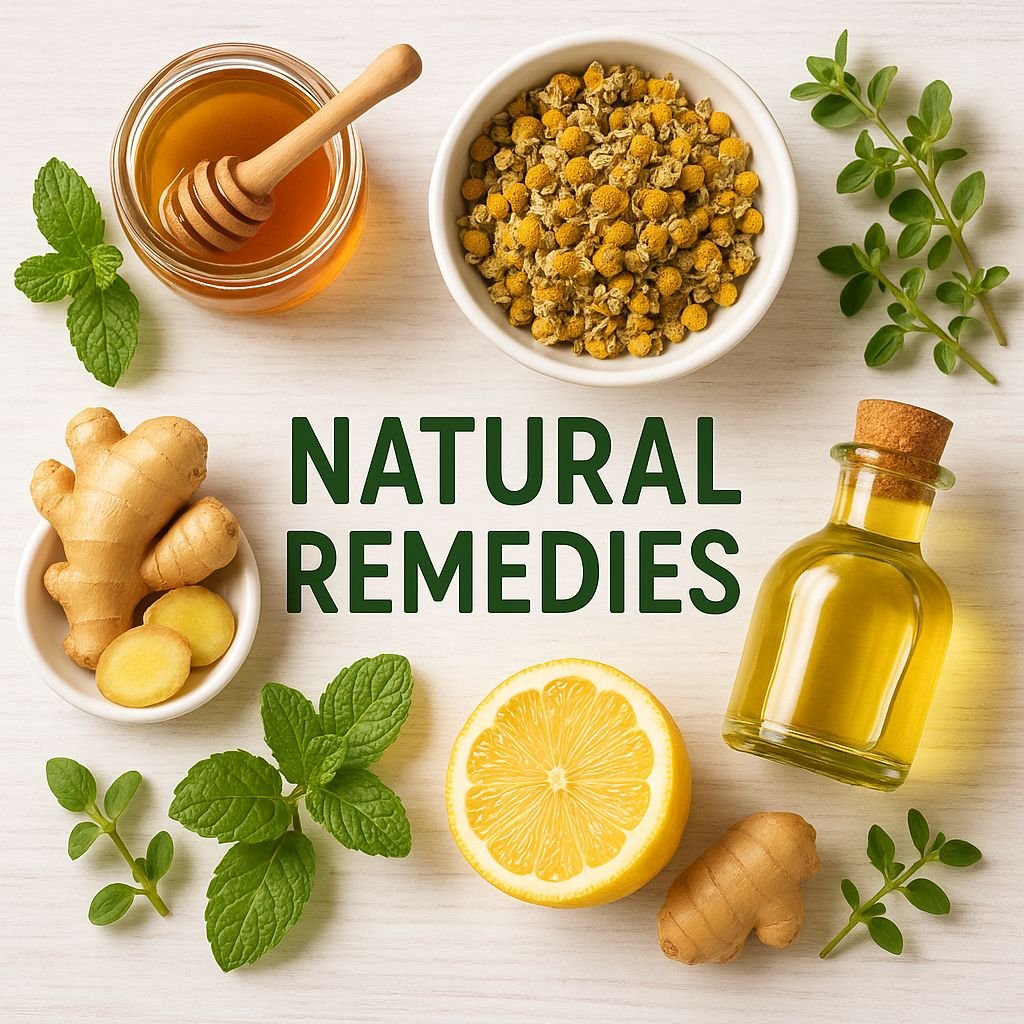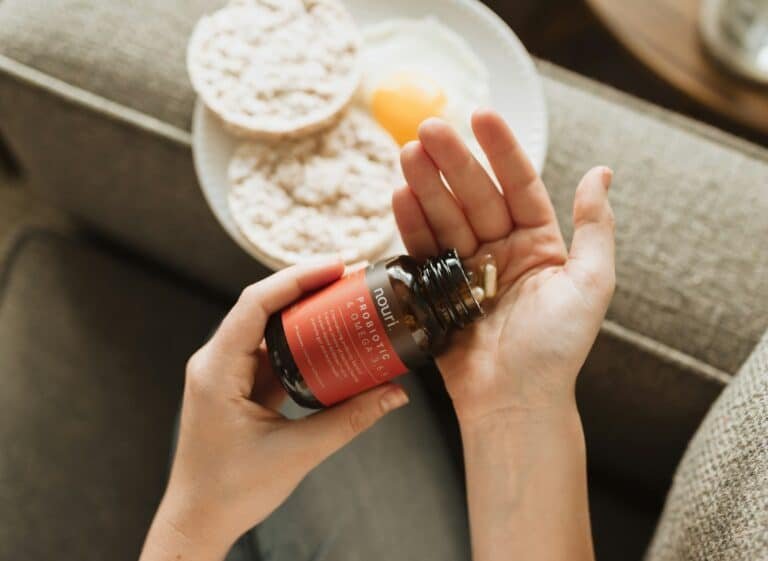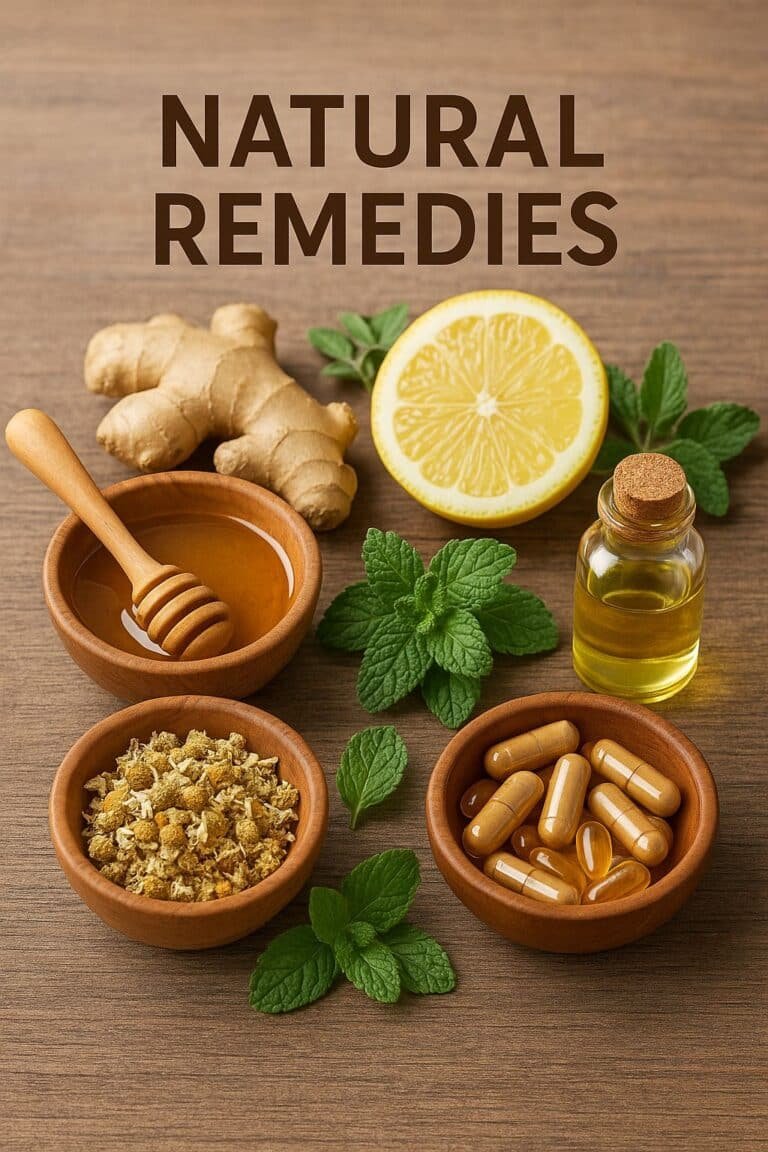Best Natural Skin Care Treatments & Remedies
Overview
- Natural skin care treatments utilize plant-based ingredients that are not only kinder to skin but also deliver effective results without the use of harsh chemicals
- Ingredients such as honey, aloe vera, and green tea offer numerous benefits including hydration, reducing inflammation, and providing antioxidant protection
- DIY treatments using common kitchen ingredients can effectively treat specific skin concerns from dryness to acne at a fraction of the cost
- Vibrant Skin Bar specializes in holistic skin treatments that combine traditional natural ingredients with modern skincare science
- A consistent natural skincare routine requires patience but usually shows results within 4-6 weeks with fewer side effects than chemical alternatives
Your skin deserves better than the chemical concoctions found in many conventional products. Natural skin care treatments provide a gentler, more sustainable method to achieve that healthy glow you’ve been striving for. By working with your skin’s natural processes rather than against them, plant-based ingredients can transform your complexion without the harsh side effects.
Beautiful skin is not always about using products with strange ingredients you can’t even say. Vibrant Skin Bar has been at the forefront of creating skincare treatments that blend traditional wisdom with the latest in skincare technology, showing that nature has all the resources your skin needs to be healthy. From potent antioxidants to calming botanical extracts, nature is rich in compounds that are good for the skin and that work well with your body.
Mother Nature’s Best Kept Secrets for Glowing Skin
Natural skin care is not just a fad—it’s a resurgence of age-old solutions that have been trusted by humans for hundreds of years. Prior to the advent of labs and mass production, individuals used plants, minerals, and other natural elements to tend to their skin. These conventional solutions have endured because they harmonize with your skin’s natural biology, instead of trying to dominate it with potent chemicals.
The Risks of Using Products Full of Chemicals
Many traditional skincare products contain ingredients that offer quick fixes but can lead to long-term harm. Parabens, sulfates, phthalates, and synthetic fragrances can interfere with your hormones, provoke allergic reactions, and remove the natural protective barrier of your skin. Even worse, these chemicals don’t just affect your skin—they also go down the drain and into our water supply, causing environmental damage. The immediate results these products provide often come at the expense of the long-term health of your skin, creating a cycle of dependence as your skin becomes more and more sensitive.
There are many popular skincare ingredients that are associated with serious health issues. Preservatives that release formaldehyde, which are often found in moisturizers and shampoos, are known to cause cancer. Mineral oils and petroleum derivatives can block pores and stop the skin from breathing as it should. Even compounds that make up fragrances, which seem harmless, can cause irritation that builds up over time and weakens the natural defenses of your skin.
Why Your Skin Loves Natural Ingredients
Your skin is the largest organ of your body, and it soaks up a lot of what you put on it. Natural ingredients are full of compounds that are good for your skin, and your skin knows how to use them. Plant oils are very similar to the oils your skin makes, so they work well with your skin’s biology. Botanical extracts are full of vitamins, minerals, and antioxidants that your skin cells can use right away. For overall wellness, it’s important to understand the benefits of eating healthy, as it complements the use of natural ingredients in skincare.
Another advantage of natural ingredients is their versatility. A synthetic product might contain one active ingredient for a specific purpose, but natural alternatives usually offer several benefits at the same time. For instance, raw honey is antibacterial, a humectant, and an anti-inflammatory all in one. This all-encompassing approach promotes overall skin health instead of just addressing individual concerns, encouraging balance instead of dependence. If you’re interested in promoting overall well-being, consider exploring the benefits of eating healthy as well.
Nature’s Secret Weapons for Radiant Skin
Mother Nature has provided us with an impressive arsenal of skin-enhancing ingredients. These plant-based wonders are so potent because they’re complex in their makeup—while synthetic ingredients often consist of a single molecule, plants are made up of hundreds of beneficial components that work together. This allows for a holistic approach to skincare, tackling multiple facets of skin health at the same time.
The Antioxidant Duo: Green Tea and Vitamin C
Free radicals are the primary cause of early aging and numerous skin issues. Green tea is rich in catechins such as EGCG, which counteract these harmful molecules while also decreasing inflammation and controlling sebum production. Regular use of green tea extracts can noticeably lessen redness, guard against sun damage, and enhance skin texture over time. Its mild astringent qualities make it particularly useful for oily and acne-prone skin types, without the dryness that comes with more severe treatments.
Natural sources of Vitamin C such as kakadu plum, rosehip, and amla berry not only brighten skin tone but also stimulate collagen production. Unlike synthetic vitamin C that can be unstable and irritating, plant-derived forms are often accompanied by complementary compounds that enhance absorption and effectiveness. These natural sources offer the benefits of brightening the skin without the potential sensitivity issues that can occur with high-concentration synthetic products.
Hydrating Heroes: Aloe Vera, Hyaluronic Acid, and Honey
Moisture is key to maintaining healthy skin, and nature provides some incredible hydrating ingredients. Aloe vera is not just for sunburns—it’s packed with over 75 active components including vitamins, minerals, enzymes, and amino acids that provide deep hydration and soothe inflammation. The plant’s natural gel-like texture allows it to seep into multiple layers of the skin, delivering these nutrients where they’re needed most. This desert plant has been praised for centuries for its ability to repair and rejuvenate damaged skin.
Nature’s Hydrators: Aloe Vera, Hyaluronic Acid, and Honey
Keeping your skin hydrated is the key to a healthy complexion, and Mother Nature has provided some amazing moisturizers. Aloe vera does much more than just help with sunburn—it’s packed with over 75 active ingredients including vitamins, minerals, enzymes, and amino acids that not only hydrate your skin but also help to reduce inflammation. The natural gel-like consistency of the plant allows it to sink deep into your skin, delivering all these beneficial nutrients right where they’re needed.
You can get natural hyaluronic acid from foods such as bone broth and soy-based products, and honey is a natural humectant. Raw honey pulls moisture from the air into the skin and its enzymes gently remove dead cells. Honey’s antibacterial properties also make it good for treating small blemishes and preventing infections, making it a versatile ingredient that moisturizes and heals.
Nature’s Skin Soothers: Oatmeal, Calendula, and Chamomile
When your skin is irritated, you need something that’s both gentle and effective, and nature has the answer. Colloidal oatmeal has compounds called avenanthramides that actively soothe inflammation and itching. When you put it on your skin, oatmeal creates a protective barrier that keeps moisture in, while its natural cleansers (saponins) remove dirt without taking away the good oils. This simple grain has been used for hundreds of years to treat everything from eczema to sunburns.
Both calendula and chamomile flowers are packed with strong anti-inflammatory properties that help minimize redness and irritation. Calendula helps speed up the healing of wounds by promoting the regeneration of cells and boosting blood flow to damaged tissues. The azulene content in chamomile gives it its unique blue color and impressive ability to soothe reactive skin. These natural soothers are especially effective for sensitive skin types that don’t react well to traditional products.

Conquer Aging with Rosehip Oil, Bakuchiol, and Seaweed
Take on the signs of aging with the help of natural ingredients that refresh and renew. Rosehip oil is a powerhouse of rejuvenation, containing all-trans retinoic acid (a natural form of vitamin A) and essential fatty acids that fortify cell membranes and enhance elasticity. Unlike synthetic retinoids, rosehip oil provides these benefits without causing irritation, making it a perfect choice for those with sensitive skin who want the anti-aging results without the usual side effects.
Bakuchiol, a natural compound extracted from the babchi plant, provides the same skin benefits as retinol without the associated sensitivity or sun reactivity. This plant-based ingredient promotes collagen synthesis and cell renewal, and reduces skin discoloration and wrinkles. Seaweeds and algae are rich in special polysaccharides and minerals that increase skin hydration, protect against environmental damage, and improve skin firmness. These marine ingredients form a protective layer on the skin that increases its resistance to factors that cause premature aging.
Homemade Natural Face Treatments for All Skin Types
Turn your kitchen into a natural beauty workshop with these powerful treatments tailored for different skin requirements. The appeal of homemade skin care is in its freshness—these recipes have no preservatives and use ingredients at their most powerful. Additionally, you can modify the formulations to perfectly suit your skin’s changing needs during different seasons and stages of life.
1. Honey-Yogurt Mask for Dry Skin
This deeply nourishing treatment is perfect for dry skin, combining probiotics with natural humectants. To make this mask, combine 1 tablespoon of raw honey, 2 tablespoons of full-fat Greek yogurt, and 5 drops of jojoba oil. The lactic acid in the yogurt gently removes dead skin cells, while the honey draws moisture into the skin. Jojoba oil, which is similar to human sebum, helps restore your skin’s natural barrier function.
Slather a generous amount on freshly cleansed skin and let it sit for 15-20 minutes before washing it off with tepid water. The active enzymes in raw honey keep doing their magic even after you’ve washed off the mask, offering prolonged benefits. Use this mask twice a week during the dry winter season or whenever your skin feels tight and dehydrated.
2. Apple Cider Vinegar Toner for Oily Skin
Don’t let your skin’s oil production get out of control. Use this simple toner to keep things balanced. Mix 1 part raw, unfiltered apple cider vinegar with 3 parts distilled water (use 4 parts water for sensitive skin). The natural acids in the vinegar help control the production of sebum, your skin’s natural oil, and restore your skin’s pH balance. Plus, it has antibacterial properties that can help prevent breakouts, which are common in oily skin types.
You can boost the effectiveness of your apple cider vinegar toner by adding herbs that are rich in antioxidants, such as rosemary or thyme. Just put a few sprigs into your mixture and let it steep for one to two weeks before you strain it. After you cleanse your skin, apply the toner with a cotton pad, and then apply your moisturizer. The initial scent of apples will fade quickly, leaving your skin feeling fresh and well-balanced.
3. Oatmeal-Turmeric Scrub for Combination Skin
If you are dealing with combination skin, this scrub is a great choice for you. Mix 2 tablespoons of finely ground oats, 1/4 teaspoon of turmeric powder, and enough plain yogurt to make a paste. The oats will gently exfoliate your skin, removing dead skin cells, while also soothing dry areas. The curcumin in turmeric reduces inflammation in oily areas of your skin and its antibacterial properties can help prevent breakouts.
Apply this scrub to damp skin using a gentle circular motion. Focus on the oilier parts of your skin and apply lighter pressure to dry areas. After 2-3 minutes, rinse thoroughly. This short contact time prevents turmeric from temporarily staining lighter skin tones while still delivering its benefits. Use once a week to keep your skin balanced. For additional tips on maintaining a healthy lifestyle, consider exploring the benefits of eating healthy.
4. Green Tea and Cucumber Compress for Sensitive Skin
This soothing treatment is perfect for cooling inflammation and strengthening delicate skin. Steep 2 green tea bags in 1 cup of cold water for 10 minutes, then add thinly sliced cucumber and let it chill for another 30 minutes. The polyphenols in green tea help reduce redness and protect against environmental damage, while the high water content and vitamin K in cucumber help reduce puffiness and strengthen capillary walls.
Immerse lightweight cotton fabric or gauze in this concoction and place it on clean skin for 10-15 minutes. The cool temperature shrinks blood vessels to instantly diminish noticeable redness, while the active ingredients go deeper to soothe irritation. This treatment is mild enough to use every day during outbreaks and doesn’t need rinsing afterward—just dab off any leftover liquid and apply your most soothing moisturizer.
5. Avocado-Lemon Mask for Mature Skin
Address various aging concerns with this rich mask that tightens, lightens, and moisturizes all at once. Blend half a ripe avocado with 1 teaspoon of lemon juice and 1 teaspoon of raw honey. Avocado’s omega fatty acids and vitamins A, D, and E replenish tired skin, while lemon’s natural alpha hydroxy acids softly exfoliate to uncover more radiant skin. The honey unifies these ingredients while contributing its own moisturizing and antibacterial benefits.
DIY Skin Care Solutions You Can Find in Your Kitchen
Did you know you have a treasure trove of skin care remedies right in your kitchen? Common ingredients you use every day can be just as effective at addressing skin concerns as specialty products, but without the expense or the chemical burden. The best part about these DIY skin care solutions is that they’re simple and pure. In fact, many of them work better than commercial products because they don’t contain the fillers, preservatives, and synthetic compounds that can cause reactions in people with sensitive skin.
Effective Natural Remedies for Acne
Traditional acne treatments can be harsh, potentially exacerbating the problem over time by stripping the skin. Tea tree oil is a softer alternative that has been shown to have antibacterial effects against P. acnes bacteria. Mix 3-5 drops with 1 tablespoon of jojoba oil and apply directly to pimples with a cotton swab. Unlike benzoyl peroxide, tea tree oil does not increase sensitivity to the sun or cause excessive dryness. For more ways to maintain a healthy lifestyle, consider these easy exercises to get you started on your fitness journey.
Raw honey is a fantastic natural remedy for inflamed acne. Thanks to its osmotic effect, it can pull out infection and create an environment that bacteria can’t survive in. All you need to do is apply a small dab directly to your blemishes and let it sit for at least 20 minutes. If you have a particularly stubborn spot, you can even leave it on overnight. The enzymes in honey can also help to reduce the redness and swelling that comes with painful cystic breakouts.
Willow bark extract, a natural salicylic acid, provides a gentle exfoliation without the harshness. You can make a basic toner by steeping 2 tablespoons of willow bark in 1 cup of hot water for 20 minutes, then strain and refrigerate it. Unlike synthetic salicylic acid products, this natural version has additional compounds that help mitigate potential irritation while still effectively unclogging pores.
- Green clay masks draw out impurities and excess oil without disrupting the skin’s acid mantle
- Niacinamide from rice water reduces inflammation and regulates sebum production
- Thyme-infused witch hazel provides natural astringent benefits with additional antibacterial power
- Turmeric paste reduces acne scarring and post-inflammatory hyperpigmentation
For hormonal breakouts, consider internal remedies as well. Spearmint tea has been shown to reduce androgen levels when consumed regularly, potentially decreasing the sebum production that feeds acne bacteria. Zinc-rich foods like pumpkin seeds and supplements like evening primrose oil can also help regulate hormonal fluctuations that trigger breakouts.
Nature’s Answers to Soothing Redness and Irritation
There can be a variety of causes for skin inflammation, but nature has given us some potent anti-inflammatory solutions. A bath with colloidal oatmeal can help to ease irritation by forming a protective layer on the skin and releasing substances that actively soothe inflammation. All you need to do is grind plain, unflavored oats in a food processor until they become a fine powder, then add a cup to warm (but not hot) bathwater and soak for 15-20 minutes.
The licorice root extract is rich in glycyrrhizin that can help reduce redness by blocking certain enzymes that contribute to inflammation. You can make a basic serum by combining 5 drops of licorice extract and 1 tablespoon of aloe vera gel. This mixture not only soothes irritation but also helps lighten the hyperpigmentation that often occurs after flare-ups of conditions such as rosacea or eczema.
If you need fast relief from irritation, keep cucumber slices in your fridge. Their high water content and caffeic acid offer immediate cooling and shrinkage of enlarged blood vessels. The simple cucumber has vitamin K and silica that fortify capillary walls over time, making them less likely to break and show visible redness with ongoing use.
Natural Remedies for Brightening Dark Spots
Dark spots and uneven skin tone can be improved with natural brightening agents, avoiding the potential risks of using hydroquinone. Freshly squeezed lemon or orange juice, which is high in Vitamin C, can be applied as a spot treatment to help reduce melanin production. For those with sensitive skin, dilute the juice with an equal amount of water. Always remember to apply sunscreen after using citrus on your skin as it can increase photosensitivity.

The extract from licorice root has glabridin, which stops the enzyme from making melanin without the irritation that can come from synthetic brighteners. Mix it with rice water (the starchy liquid that’s left after soaking rice) for even more brightening. Rice water has para-aminobenzoic acid that guards against UV damage and gently exfoliates to get rid of darkened surface cells.
Old World Beauty Secrets: For hundreds of years, Japanese women have been using rice water for its beauty benefits. This practice dates back to the Heian Period when court ladies, famous for their long, beautiful hair, would wash their hair in rice water. Over time, they also began using it on their faces when they discovered its skin-brightening properties. If you’re interested in enhancing your natural beauty, you might also consider the benefits of eating healthy.
Creating Your Own Natural Skin Care Regimen
Switching up your skin care doesn’t have to mean a complete overhaul. Begin by pinpointing your skin’s unique needs and tackling them with focused natural remedies. Keep in mind that consistency is more important than complexity—a straightforward routine you’ll stick to is more effective than a complex routine that’s too much to handle. The secret is knowing how various natural ingredients interact to promote your skin’s health through daily and weekly routines.
Start Your Day Right: Clean, Fresh, and Protected
Start your day by gently washing your face with a honey wash or oat milk cleanser to remove any impurities that have built up overnight without removing the natural oils from your skin. The natural enzymes in honey help to break down any debris while keeping your skin’s delicate pH balance intact. If you have dry skin, cleansing oils with jojoba or avocado are a great choice as they cleanse your skin effectively while also strengthening the lipid barrier. For more on maintaining a healthy lifestyle, consider reading about the benefits of eating healthy.
Next, use an alcohol-free toner such as rose water or cucumber hydrosol to balance pH and ready your skin for treatments. These natural astringents will tighten your pores without causing the tight, dry feeling that conventional toners often do. Apply them while your skin is still damp to ensure that the products you use afterwards are absorbed as much as possible.
End your routine with a protective step that matches your day’s activities. For daily exposure, opt for zinc oxide-based mineral sunscreens that provide broad-spectrum protection without the use of chemical filters. For an added layer of defense against environmental stressors, apply antioxidant-rich botanical oils underneath your sunscreen. Oils like pomegranate seed oil or sea buckthorn oil contain compounds that not only enhance your skin’s natural sun protection but also combat free radical damage.
Nighttime Regimen: Cleanse, Correct, and Refresh
Your nightly routine should be all about taking off the dirt and toxins from the day and letting your skin repair itself while you sleep. Start with oil cleansing, using oils from plants like olives, castor, or jojoba. These oils can take off makeup and dirt from the environment without using harsh soaps. The idea of “like dissolves like” means that oils can actually do a better job of getting rid of oil-based dirt than cleansers that foam.
Evening is the best time to apply treatment serums that target specific issues. Use rosehip oil for its anti-aging properties, tea tree oil mixes for acne prevention, or sea buckthorn oil to repair the skin barrier. Plant oils penetrate the skin more effectively at night when the skin temperature rises slightly, improving the absorption of beneficial compounds. Apply thicker moisturizers or sleeping masks like raw honey, mashed avocado, or shea butter to lock in treatments and prevent water loss through the skin overnight.
Deep Nourishment with Weekly Treatments
Boost your daily skincare routine with weekly treatments that target your skin’s deeper needs. Clay masks made with bentonite or rhassoul clay not only remove impurities and excess oil but also supply your skin with strengthening minerals. Switch things up with hydrating masks that have hyaluronic-rich ingredients such as aloe, honey, or cucumber to keep your skin’s moisture levels balanced and prevent it from becoming too dry.
Lightly scrubbing your skin once or twice a week gets rid of dead cells that can make your skin look dull and stop skin care products from working. Exfoliants made from papaya, pineapple, or pumpkin use enzymes to get rid of the protein bonds between dead cells without causing the tiny tears that physical scrubs can cause. If you have older skin, try using gommage exfoliants. These combine fruit enzymes with a light scrubbing action to get rid of dead cells without irritating your skin.
Top Natural Skin Care Products You Can Buy
Although home-made treatments offer freshness and personalization, quality store-bought products can offer convenience and specialized formulas. The natural skin care market has come a long way, with advanced formulas that can compete with traditional products in terms of effectiveness while still maintaining high purity standards. When shopping for natural products, don’t just rely on marketing claims. Instead, look at the actual list of ingredients and how transparent the company is.
How to Read Ingredient Labels
Real natural products will list familiar plant extracts and oils at the top of the ingredient list, rather than hiding them at the end of a long list of chemicals. Water (aqua) usually comes first because of how products are formulated, but you can also look for organic botanical hydrosols like rose water or witch hazel as alternative bases. Stable plant oils like jojoba, meadowfoam, or sunflower will last longer on the shelf than more delicate oils like flaxseed, so they don’t need as many synthetic preservatives.
Quality of ingredients can be guaranteed through certification logos. Be on the lookout for symbols like USDA Organic, COSMOS, NATRUE, or EWG Verified, which indicate compliance with accepted natural standards. These certifications demand thorough documentation and testing to confirm that both the sources of ingredients and the manufacturing processes adhere to strict guidelines for purity and sustainability. For more insights on maintaining a healthy lifestyle, consider exploring the benefits of eating healthy.
Ingredients to Steer Clear Of
Even products that claim to be “natural” can contain harmful ingredients hidden behind complicated scientific names. Try to avoid products that contain PEGs (polyethylene glycols), as they can be contaminated with ethylene oxide and 1,4-dioxane, both of which are potential carcinogens. Silicones (ingredients that end in -cone or -siloxane) can give a false sense of smoothness while possibly trapping dirt and bacteria under a film that blocks the skin. For more on maintaining a healthy lifestyle, check out the benefits of eating healthy.
Be cautious about “fragrance” or “parfum” that doesn’t specify that it comes from essential oils. This umbrella term can legally hide many synthetic chemicals, some of which may disrupt hormones. Similarly, preservative systems that use parabens, phenoxyethanol, or formaldehyde releasers can cause sensitization over time. Instead, look for products preserved with radish root ferment filtrate, sodium anisate, or other plant-derived antimicrobials.
Leading Brands with Proven Results
Vibrant Skin Bar is known for their dedication to all-natural formulas that work in harmony with your skin’s inherent functions. They utilize botanicals such as bakuchiol, sea buckthorn, and medicinal mushrooms in their products to deliver scientifically proven results without any compromises. Their openness about their sourcing and manufacturing processes has made them a trusted name in the world of natural beauty.
Some other brands worth mentioning are Tata Harper, which uses luxury formulations with ingredients grown on their own farm, Pai Skincare, which provides solutions for sensitive skin, and Josh Rosebrook, which offers innovative plant-based treatments. These brands have led the way in creating advanced natural formulations that are highly effective while also preserving the integrity of the ingredients. Many of their products include their own unique combinations of botanical extracts that can address several skin concerns at once, proving that natural doesn’t have to mean giving up results.
Making the Transition to Natural Skin Care
It’s best to transition to natural skin care gradually rather than all at once. This gives your skin time to adjust to new ingredients and break any dependencies it may have on synthetic ingredients. Instead of throwing everything out and starting over, replace products as they run out. This allows you to see how your skin reacts to each new product and is also more cost-effective and better for the environment.
The Clever Switch Strategy
Begin with the everyday essentials such as face wash and lotion before moving on to treatment products. These fundamental steps set up a good base and prevent possible reactions that could happen if you’re introducing several active ingredients at the same time. Keep an eye on how your skin feels after each new product—more hydration, less irritation, and a healthy glow are signs of positive changes, while ongoing tightness, redness, or breakouts indicate that you may need to reconsider your choices.
Anticipating Your Results and Their Timeline
When it comes to natural skin care, it’s important to remember that results may take a bit longer than what you might expect from traditional products. This is because natural skin care works with your skin’s natural processes instead of forcing immediate changes. You can expect to see improvements in hydration within a few days, reduced inflammation within 1-2 weeks, and significant changes in texture and tone within 4-6 weeks as your skin completes a full renewal cycle. More stubborn issues like hyperpigmentation or deep wrinkles may require 2-3 months of consistent application before dramatic improvements appear, but these results tend to be more stable and long-lasting than quick fixes from harsh ingredients.
How to Naturally Maintain Your Skin’s Health
Opting for natural skin care is a way to tap into time-honored knowledge while also taking advantage of the latest developments in plant-based science. The healing, protective, and transformative properties of plants have been recognized in various cultures for thousands of years, and our current knowledge of phytochemistry enables us to harness these benefits more effectively than ever before. When you select ingredients that work with your skin’s natural processes rather than trying to alter them, you build resilience and enduring beauty that comes from true health, not just superficial cosmetic changes.
Your skin care routine should be as unique as you are. Pay attention to how your skin’s needs change with the seasons and different stages of your life, and adjust your natural skin care routine accordingly. Keep in mind that what you put on your body is just as important as what you put in it—both deserve the same careful thought and dedication to purity. With the help of Vibrant Skin Bar and the power of nature, you can have glowing skin without sacrificing your health or your commitment to the environment.
Common Questions
When you start to look into natural skin care, you may have questions about how well it works, how to use it, and what to expect. These answers can help. They’re based on both old traditions and the latest research into how plants and other natural ingredients work with your skin.
When can I expect to see results from natural skin care?
Natural skin care takes time to work because it helps your skin’s natural renewal processes, rather than pushing for drastic changes. Most people will see better hydration and less irritation within the first week of changing to gentler, plant-based products. More noticeable changes in texture, tone, and specific issues usually appear after 4-6 weeks, which aligns with your skin’s natural turnover cycle. Understanding the benefits of eating healthy can also support your skin’s health and overall appearance.
Natural remedies might take longer to show results, but they’re worth the wait. While artificial products might give you quick results, they often have side effects like skin sensitivity or addiction. Natural treatments offer long-term benefits, with results becoming more noticeable and consistent over several months of regular use as your skin’s overall health improves.
Is it possible to have an allergic reaction to natural ingredients?
Absolutely, natural ingredients can cause allergic reactions in people who are sensitive to them. Common allergens include essential oils (particularly those from the citrus and mint families), plant proteins found in almond or wheat extracts, and certain botanical compounds such as eugenol in clove oil. The idea that “natural equals hypoallergenic” is a myth, as many potent allergens come from plants.
- Always perform patch tests with new natural products, especially if you have sensitive skin
- Be cautious with essential oils, which should always be properly diluted
- Consider potential cross-reactions if you have known food allergies
- Start with simple formulations containing fewer ingredients to more easily identify potential triggers
Many people who react to conventional products find relief with natural alternatives because they avoid synthetic fragrances and preservatives, which are among the most common sensitizers. However, this doesn’t guarantee universal compatibility. The key is finding which natural ingredients work specifically for your skin rather than assuming all natural options will be suitable.
Can natural skin care treatments help with severe skin conditions?
While the effectiveness of natural treatments varies depending on the severity and cause of the skin condition, many skin conditions can be significantly improved with natural approaches. Anti-inflammatory botanicals like calendula, chamomile, and niacinamide from natural sources often have a positive effect on mild to moderate eczema, rosacea, and acne. These ingredients not only reduce the underlying inflammation, but they also support barrier repair, addressing both the symptoms and the contributing factors.
If you’re dealing with a serious or diagnosed skin issue, a combined approach can often be most effective. Find a dermatologist who values integrative methods and can guide you in adding natural remedies to conventional treatments when needed. This kind of balanced method can sometimes lower the amount of prescription medication you need and lessen side effects. Keep a record of your results from natural treatments to show your healthcare providers, as this can help them understand how your skin reacts to different treatments.
Are natural products less durable?
Due to their lack of artificial preservatives, genuinely natural products generally don’t last as long as their traditional counterparts—usually they’re good for 3-12 months after opening, while heavily preserved products can last 2-3 years. But this is actually a sign of freshness, not a drawback. Over time, plant compounds break down, lose their strength, and may even oxidize, so using fresher products means you’re getting the most out of the active botanical ingredients.
Is it okay to mix different natural ingredients together?
Mixing natural ingredients can create powerful synergies, but it’s important to be aware of potential interactions. Some combinations enhance each other—vitamin C from rosehip works better when combined with vitamin E from sunflower oil, as they regenerate each other during antioxidant activities. On the other hand, some pairings can reduce effectiveness or cause irritation, such as mixing acidic ingredients (like lemon juice) with alkaline ones (like baking soda) or combining multiple potent essential oils.
Begin with tried-and-true recipes from reliable sources before trying out your own blends. Keep a record of what works for your skin, and add only one new ingredient at a time so you can accurately gauge its impact. Keep in mind that simpler recipes with fewer ingredients often yield better results than complicated concoctions where ingredients may cancel each other out.
Do pricey natural skincare products outperform homemade remedies?
The benefits vary between store-bought and homemade natural skincare. Top-of-the-line store-bought products provide advanced formulation technology, stability testing, and specific extracts that would be challenging or impossible to make at home. Their steep price often mirrors proprietary extraction methods that maximize active compounds, specific plant stem cells, or fermented botanicals with improved bioavailability.
Do-it-yourself treatments are great for freshness, personalization, and affordability for basic treatments. A quick honey mask made just before use has active enzymes that would need specialized preservation systems in a store-bought product. The best method is a combination of both: use store-bought products for complex treatments that need stability and precision (serums, sunscreens) and enjoy the benefits of fresh DIY treatments for masks, scrubs, and simple moisturizers.
AI content:
Artificial Intelligence has been a boon to the skincare industry, with its ability to identify skin issues and suggest the best natural remedies.
Human content:
The skincare industry has greatly benefited from the advent of Artificial Intelligence. It can detect skin problems and recommend the most effective natural treatments.






